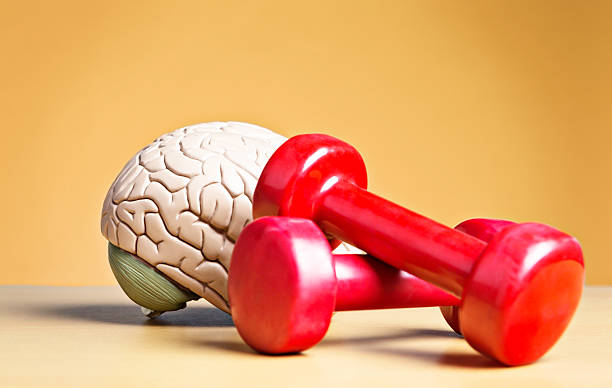When most people think of healthcare, they imagine doctors, nurses, or physiotherapists. Yet, another profession plays an equally vital role in helping people live healthier, more independent lives—occupational therapy. This branch of healthcare focuses on enabling individuals to participate in meaningful daily activities, even when illness, injury, or disability poses challenges.
For many Australians, particularly those recovering from injury, managing chronic conditions, or adjusting to age-related changes, occupational therapy provides the tools, strategies, and support needed to improve quality of life. In this article, we’ll explore what occupational therapy involves, how it supports recovery, and why services like occupational therapy Melbourne are becoming increasingly important for patients and families.
Contents
What Is Occupational Therapy?
Occupational therapy (OT) is a client-centred health profession that helps people regain or develop the skills needed for daily life. The term “occupation” doesn’t just refer to employment—it refers to any activity that occupies your time, from getting dressed and preparing meals to working, socialising, or engaging in hobbies.
An occupational therapist works with patients to assess their unique needs, develop personalised treatment plans, and provide interventions that improve independence and participation in everyday activities.
Who Can Benefit from Occupational Therapy?
Occupational therapy is suitable for people of all ages. Its applications are broad, supporting children, adults, and seniors in different ways:
- Children: OT helps children with developmental delays, sensory processing issues, or disabilities improve fine motor skills, learning abilities, and social participation.
- Adults: Individuals recovering from injury or surgery benefit from rehabilitation programs that restore physical function and confidence.
- Seniors: OT assists older adults in maintaining independence, preventing falls, and managing conditions like arthritis or dementia.
By addressing physical, cognitive, and emotional barriers, occupational therapists empower individuals to live more fulfilling lives.
Occupational Therapy in Recovery
Recovery after illness or injury is rarely straightforward. Patients often face obstacles that extend beyond physical healing. Occupational therapy bridges this gap by focusing on practical solutions that directly improve daily living.
Physical Rehabilitation
After events such as a stroke or surgery, patients may lose mobility or coordination. Occupational therapists create tailored exercise programs and recommend assistive devices to help regain functional independence.
Pain and Fatigue Management
For those with chronic pain or fatigue-related conditions, OT provides strategies to manage symptoms. This includes pacing techniques, energy conservation methods, and adaptive equipment to reduce strain.
Mental Health Support
Occupational therapy is also valuable in mental health recovery. By helping individuals engage in meaningful activities, therapists promote structure, confidence, and emotional well-being.
Supporting Daily Living
Occupational therapy isn’t only about recovery—it’s also about making everyday tasks easier and safer.
- Home Modifications: Simple changes like installing grab rails, ramps, or improved lighting can transform a home into a safer, more accessible environment.
- Adaptive Equipment: Tools such as ergonomic cutlery, walking aids, or dressing devices make daily tasks manageable for people with limited mobility.
- Skills Training: Therapists teach practical skills, such as safe cooking methods or stress management, to enhance independence.
By tailoring interventions to each individual, occupational therapists ensure that care extends into real-life settings, not just clinical environments.
The Rise of Mobile Occupational Therapy
One of the most significant advancements in recent years is the growth of mobile occupational therapy Melbourne services. Instead of requiring patients to travel to clinics or hospitals, occupational therapists now provide care directly in the comfort of their clients’ homes.
This model offers several benefits:
- Convenience: Eliminates travel barriers, particularly for seniors or individuals with mobility issues.
- Real-World Context: Therapists can assess the patient’s actual environment, making interventions more practical and effective.
- Family Involvement: Loved ones can be more easily included in therapy sessions, improving communication and support.
- Continuity of Care: Patients often feel more relaxed and receptive when therapy takes place in familiar surroundings.
Mobile therapy represents the future of healthcare delivery, making rehabilitation and support more accessible than ever before.
The Role of Technology in Occupational Therapy
Technology is also transforming occupational therapy. Telehealth, mobile apps, and wearable devices now complement traditional therapy methods.
- Telehealth Consultations: Video sessions allow therapists to connect with patients remotely, especially useful for rural or busy clients.
- Wearable Devices: Smartwatches and sensors track physical activity and progress, giving therapists valuable data.
- Digital Tools: Apps can guide patients through exercises, remind them of daily routines, and even provide mental health support.
These innovations expand the reach and effectiveness of occupational therapy, particularly in combination with in-home services.
Why Choose Home Physiotherapy?
When seeking occupational therapy, choosing the right provider is key. Home Physiotherapy offers tailored services that combine expert care with the flexibility of mobile delivery. Their team of experienced therapists works with patients in Melbourne to create customised plans that address individual needs, whether it’s recovery, rehabilitation, or long-term daily living support.
By bringing therapy into the home, Home Physiotherapy ensures that treatment is practical, accessible, and aligned with each patient’s lifestyle.
Conclusion
Occupational therapy plays an essential role in helping people recover from illness, adapt to changes, and live as independently as possible. From assisting with rehabilitation to simplifying daily routines, occupational therapists provide holistic support that improves quality of life.
With the rise of mobile services, accessing occupational therapy Melbourne has never been easier. Patients can now receive professional care in their own homes, making therapy more convenient and effective. For families and individuals seeking trusted, compassionate support, Home Physiotherapy delivers both expertise and peace of mind.
Occupational therapy is a vital component in enhancing the quality of life for individuals facing physical, emotional, or cognitive challenges. By focusing on personalized strategies, it empowers patients to regain independence and confidence in their daily routines. Whether it’s through adaptive techniques or specialized equipment, the goal is to facilitate meaningful engagement in everyday activities. If you or a loved one is struggling to manage daily tasks due to health issues, it’s crucial to seek professional guidance. Don’t hesitate to get help now to explore tailored solutions that can significantly improve your well-being and overall functionality.




